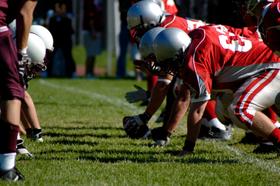While academic grades are essential for job applications and career success, many employers also seek well-rounded candidates who have demonstrated participation in extracurricular activities. Community colleges nationwide provide students with academic and non-academic clubs, organizations, and sports teams to promote personal and professional development.
As Scottsdale Community College describes,
Participation in the work of various clubs and organizations on campus provides students an opportunity to acquire leadership, planning, and social skills that are important for successful living.
The Benefits of Clubs and Extra-Curricular Involvement
Students interested in creating a well-developed resume for job and career applications know that community college clubs and activity opportunities are essential. In addition to professional development opportunities, community college clubs also provide students with personal, social, and community service venues, enhancing the overall collegiate experience.
As the Associated Press describes, clubs and extra-curricular activities are “extremely important in helping students develop lifelong good working habits […] Students involved in extra-curricular activities learn how to work as part of a team towards a common goal […] Students also learn valuable character traits such as pride, productivity, and organization.”
In addition to helping foster practical skills such as time management, leadership, and responsibility, extra-curricular activities allow students to test the waters and explore new areas of interest. Additionally, balancing the time commitments involved in participating in clubs with those necessary to maintain good grades helps prepare students to balance the demands of a career, family, and other life obligations.
There are many varieties of on-campus clubs and organizations on community college campuses. Choosing which ones to join can be difficult. Many schools will have a club rush at the beginning of each academic year to inform new students of the extra-curricular activities available on campus. Oftentimes, clubs will have individual booths set up in the student union or another easily accessible place, with members available to answer questions. A few of the most common types of clubs are discussed below.
Community Service Clubs
Most community colleges strive to offer student clubs that can enhance community involvement and volunteerism. Cape Fear Community College, located in Wilmington, North Carolina, is one of the many colleges offering a wide variety of service opportunities for students. Specifically, CFCC’s Rotaract Club is one of the most popular student organizations and is geared toward students ranging from 18 to 30 years of age. CFCC says, “The club fosters leadership and responsible citizenship, encourages high ethical standards in business, and promotes international peace and understanding.
This video offers an overview of Rotaract Clubs.
The Rotaract Club focuses on community service projects, professional development activities, and leadership development activities. Now, with over 7,000 Rotaract Clubs in 150 countries, this organization’s popularity helps guide students toward community and social opportunities.
Personal Development Clubs
Many community college clubs promote social involvement, allowing students to interact with peers and meet new friends. Durham Technical Community College, in North Carolina, is one of the many community colleges with various social clubs for students. For example, the Eminence Women’s Leadership Initiative is an organization that is open solely to female students.
As the club describes,
“This organization is designed to support, encourage, and celebrate the contributions that female students can make to the College Campus. The primary focus will be on skill development in the areas of leadership, mentoring, and networking on campus and […] in the community we serve. Eminence also strives to build “self esteem, self worth, elegance, grace, strength, and intellect.”
Professional Development Clubs
For students interested in joining a club that is geared towards a specific career, Nassau Community College in Garden City, New York, has a diverse list of professional clubs, including organizations in accounting, science, and Wall Street finance.
For students pursuing careers in physical therapy, the Physical Therapy/Occupational Therapy Club welcomes all new students to join their professional organization. As this club describes, “The purpose of our club is to broaden students' awareness and knowledge of the physical therapy and occupational therapy fields as well as to bring together students with common goals.” Club activities include “field trips, community service, social parties, and guest speakers,” membership is open to all applicants.
Offering another physical/medical option, students can also look into the Pre-Chiropractic Society, where this student-run and the social organization provides members with “a wealth of information regarding career opportunities and chiropractic philosophies.” As chiropractic services are one of the largest and fastest-growing groups of drug-free health care treatments around the world, this organization strives to teach members about the varying and complex elements of chiropractic wellness. Members are able to work with peers, colleagues, and mentors to find out more about chiropractic careers and services.
Club Sports
For those with an interest in athletics, many community colleges offer club sports teams. Club teams don’t offer scholarships, and quite often have very little adult leadership. Oftentimes, club teams will devise rules, fundraise to pay for uniforms, and travel long distances to play other club teams in both formal and informal tournaments. Well over 2 million collegiate athletes participate in club sports, ranging from water polo to volleyball to soccer. Some colleges even have competitive ballroom dancing teams and bass fishing teams. Without the restrictions of the National Collegiate Athletics Association (NCAA), each school has the freedom to create just about any club sport they want. The benefits of club sports are similar to other clubs – improved communication and leadership skills, increased responsibility and self-management, and better teamwork skills. Additionally, students who participate in club sports benefit from improved physical health.
How to Join or Start a Club
Most clubs are posted on each community college’s website, as all school-approved clubs and organizations must register with each college. As each club may have its own specific requirements for joining, interested members can contact the club leader or president to find out membership information.
Paired with this, for individuals interested in starting a club, the Association of College and University Clubs (ACUC) is a non-profit organization that works with campus-based clubs in North America and around the world to better aid student organizations. The ACUC’s mission is to “facilitate reciprocal relationships between university clubs, to create a network of persons connected with the management of university clubs, to promote the interchange of ideas and information necessary to achieve association goals and to promote and encourage efficient and successful club management.”
This video offers some tips for starting a club.
ACUC also strives to promote global awareness of the college and university club benefits and services, as nearly 100 clubs worldwide participate in this program. Students interested in registering with ACUC to start or promote their club can fill out an application at their website
Whatever organization you choose to join – or start – you will reap the benefits of being involved in campus activities. For job applications, financial aid, internships, and other future academic endeavors, demonstrating a well-rounded collegiate experience, with good grades maintained throughout, will get you a leg up on the competition. Managing multiple demands on your time in college will prepare you to take on the demands of work, home, and other life obligations as well.
Questions? Contact us on Facebook. @communitycollegereview















